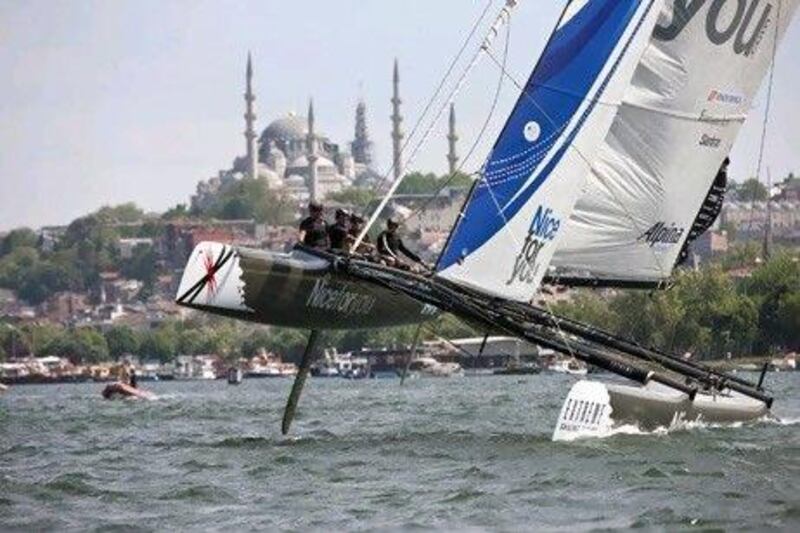Equidistant from London and Abu Dhabi, Istanbul makes an ideal half-way point to meet a friend from the Old Continent.
Q&A:Welcome to the Great Divide
Last Updated: June 6, 2011
What is Turkey's main industry? Turkey has a diversified industrial base but its economy has always centred on the Bosporus, a strategic waterway connecting the Black Sea and the Mediterranean. It provides Istanbullus, as the city's residents are known, with an excellent excuse to get out on the water regularly because the city spreads across both sides of the channel.
Is it used for anything other than carrying Byzantine navies and Russian commodities? Small cruise ships jostle for position on the quayside at Galata Bridge, offering tourists a delightful tour of the nearby coast for a mere 10 lira (Dh23.35) per person. It's also a superb sailing venue, and last month played host to the Extreme Sailing series for 40-foot catamarans.
Is Turkey part of Asia or Europe? That is the whole point! Istanbul is built on both sides of the Bosporus, so it qualifies for both.
Isn't it joining the EU? Turkey applied to join in 1987, signed a customs union in 1995 and was officially recognised as a candidate in 1999. But negotiations have stalled.
So you mean I have to change money and get a visa? You can buy a visa at the airport for about US$20 (Dh73.50). You can change all major currencies at exchange houses in Istanbul.
For the European visitor, this city spanning the Bosporus provides a tantalising glimpse of the Orient, with its rich Ottoman past. For the Gulf traveller already conversant with Islamic history, it offers a fascinating variation on the theme.
There is just so much history packed into this town, and so many delightful views, that any business traveller will need to set aside at least a weekend to take it in.
Top of the deck for this writer is the Topkapi Palace. Home to the Ottoman Sultans for 400 years until the mid-1850s, this hill-top fortress hides a city of exquisite tiles with painted floral designs behind its stone walls.
Perhaps the most fascinating enclave of the palace is the imperial harem, which was home to ruling Sultans' mothers, who were known as the Valide Sultans, the concubines and Sultans' wives plus the rest of the royal family, including servants. This complex household was overseen by African eunuchs and out of bounds for anyone else.
Perhaps the most evocative story of the harem was the Kafes, otherwise known as "the Cage". To avoid wars of succession, Ottoman rulers were mandated for centuries to kill their brothers on assuming office. But in the 17th century, Sultan Ahmet dictated the tradition of fratricide be reformed in favour of putting all potential successors under house arrest in this area of the harem. Brothers were confined to this precinct surrounded only by deaf mutes and barren concubines. Their only hope of escape was in the event of the Sultan's death.
For some, it proved too much.
Ibrahim I emerged from the cage in 1640 and earned the sobriquet "Ibrahim the Mad" for his depraved rule.
He was deposed eight years later after drowning 280 concubines in the Bosporus.
Top 5: Essentials while in Istanbul.
1 Bosporus cruise.
2 Grand Bazaar.
3 Spice Market.
4 Underground cisterns of Yerebatan Sarnici.
5 Turku band in Beyoglu restaurant.
The Quote: "First the rent and taxes went up, and then, thanks to the immigrants, the city was flooded with razor sellers, simit sellers, stuffed mussel sellers, tissue sellers, slipper sellers, knife and fork sellers, sundries sellers, toys sellers, water sellers and soft drink sellers, and as if that weren't enough, pudding sellers, sweet sellers and doner sellers have now invaded our ferries." Ohran Pamuk in Istanbul, Memories and the City






